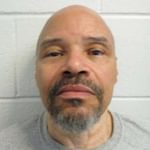
On May 15, 2025, the Utah Supreme Court unanimously upheld a lower court’s decision vacating Douglas Carter’s (pictured) conviction and death sentence and ordering a new trial. The Court found that Utah County prosecutors violated Mr. Carter’s constitutional rights on multiple occasions with their “intentional misconduct” during his 1985 trial that accused him of causing the death of Eva Olesen during a home invasion. In November 2023, Utah County District Court Judge Derek P. Pullan ordered a new trial following an evidentiary hearing in which the court heard testimony regarding police coercion, the withholding of exculpatory evidence, and failure to correct false testimony. The state appealed this decision, leading to the supreme court’s ruling.
In its appeal, the state did not contest Judge Pullan’s factual findings but argued that he used the wrong legal standard to reach his decision. Ultimately, the Utah Supreme Court agreed that Judge Pullan used the wrong standard but found that he nevertheless arrived at the proper outcome. The high court wrote that “applying the correct legal standard, there is no question that these numerous constitutional violations — suppressing evidence, suborning perjury, and knowingly failing to correct false testimony — prejudiced Carter at both his trial and sentencing.”
“It is rare to see a case involving multiple instances of intentional misconduct by two different police officers…and a prosecutor. But that is what the post-conviction court found here.”
No physical evidence linked Mr. Carter to the crime. He was convicted based upon a confession to police that he says was false and coerced, and the testimony of two witnesses, Epifanio and Lucia Tovar, who claimed Mr. Carter confessed to the murder. Both witnesses were vulnerable to pressure because they were not legal U.S. residents at the time. At trial, Mr. Tovar testified that Mr. Carter told him prior to committing the crime that he intended to “rape, break, and drive,” that night, and that l Mr. Carter later returned to his house to confess. Mr. Tovar told the jury that Mr. Carter performed a physical demonstration of the crime while laughing. Ms. Tovar verified the timeline her husband testified to and said she saw Mr. Carter acting something out.
However, in 2011, attorneys for Mr. Carter located the Tovars, by then living in Mexico, who signed declarations stating they were both threatened and coerced by police to lie about Mr. Carter and about receiving financial support from the Provo police. The Utah Supreme Court ordered the trial court to conduct an evidentiary hearing, calling the signed declarations, “damning.” The declarations included revelations that Provo police had paid the Tovars’ rent and given them groceries and gifts in the month leading up to trial, told them to lie about payments, and threatened to deport them or take their infant son if they did not cooperate. The Court ruled that the new evidence of police and prosecutorial misconduct left the Tovars’ trial testimony “tainted as a whole.”
Eric Zuckerman, counsel for Mr. Carter, said in a statement that his client “has spent more than forty years behind bars because of an unconstitutional conviction rooted in police and prosecutorial misconduct — including the suborning of perjury before a jury of his peers.” He added that “we are gratified that both the trial court and the Utah Supreme Court have validated Mr. Carter’s claims. But no ruling can restore the four decades of freedom the State of Utah unjustly took from him. This decision underscores what has long been clear: Utah’s death penalty system is broken beyond repair.”
Emily Ashcroft, ‘Intentional misconduct’: Supreme Court orders new trial for death row inmate Douglas Carter, KSL.com, May 15, 2025; Katie McKellar, Utah Supreme Court affirms ruling ordering new trial for death row inmate, Utah News Dispatch, May 15, 2025.


